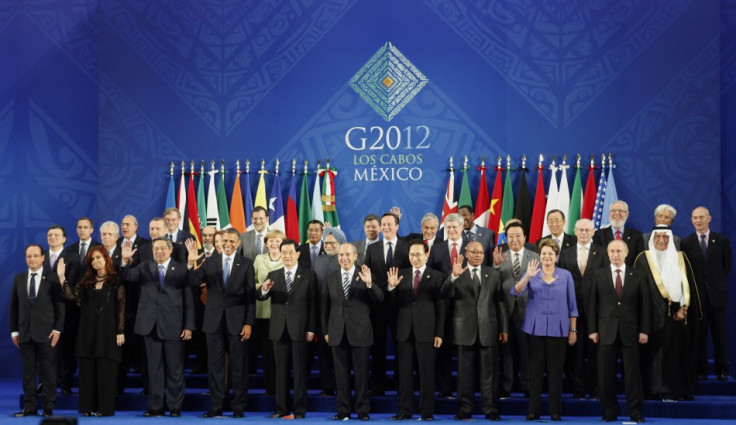G20 Welcomes China's Promise on Transparent Currency Policy [VIDEO]
China has long been accused of being a currency manipulator especially by the US.

G20 leaders at the Mexico summit welcomed China's assurance of policy changes in valuing its currency remnimbi and making its foreign exchange rate more transparent.
"We also welcomed the commitment by China to allow market forces to play a larger role in determining movements in the remnimbi, continue to reform its exchange rate regime and to increase the transparency of its exchange rate policy," the draft communiqué said, according to Reuters.
"[G20 leaders are committed to] move more rapidly toward market-determined exchange rate systems and exchange rate flexibility to reflect underlying fundamentals, avoid persistent misalignments and avoid persistent devaluation of currencies," the draft added.
For a long time, countries have been asking China for more transparency in its currency valuation.
China has been accused of keeping the remnimbi undervalued in order to boost its trade and undercut competitors.
This should be good news especially for US financial officials who have been at a sort of currency war with China for a long time. The US has been accusing China of being a currency manipulator.
The dispute between the two countries over the valuation of the currency been long drawn out.
Despite China allowing the remnimbi to rise 13 percent against the dollar in the last two years, it is still under the control of the government.
Higher Chinese inflation is cited to be a factor for the constant appreciation of the remnimbi against the dollar.
The Financial Times reported that the Chinese currency was undervalued by 2.8 percent in real trade-weighted terms and by 7.7 percent against the value of a dollar in May, according to calculations by the William Cline and John Williams at the Peterson Institute for International Economics in Washington.
This is much closer to the equilibrium rate compared to that of last year where the remnimbi was undervalued by 16 percent in real trade and 28.5 percent against the dollar.
Given the dismal situation of the global economy, the currency war could bounce back anytime, warn experts.
The imbalances between the countries' employment rates and slower growth rate can be a potential threat in triggering the currency war once again.
© Copyright IBTimes 2024. All rights reserved.





